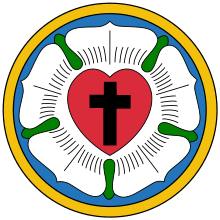REFORMATION Revealed
REFORMATION Revealed
The events of the Reformation did not reveal anything new. They only uncovered what was part of Christian teaching to begin with that had become forgotten or hidden over the years by Church practices and traditions that had developed. Martin Luther pulled back the curtain, if you will, on what the Scriptures actually said and what the early Church intended. Though revolutionary for their time, the tenets of the Reformation are integral parts of the life of the Protestant church today.
CONFESSION The act of confessing sins to God is a personal act between you and God that is not necessarily something that needs to be done in a formal way in the church. Whether at home or in the car or at work or school, you can confess your sins to God and he will grant you full forgiveness. As the Scripture simply says, “If we confess our sins, he is faithful and just to forgive us our sins and to cleanse us from all unrighteousness” (1 John 1:9).
READING THE BIBLE In the time of the Reformation, only the church leaders read and had access to the Bible. Parishioners only listened to church leaders read the Bible aloud in church in Latin, which made it difficult for everyday people to know and understand the Scripture. Martin Luther translated the Bible into German and copies were printed and distributed so that people in his country could read the Bible on their own in their own language. Other translations followed and people’s awareness of Christian beliefs grew. Today we are blessed with Bibles written in English and the chance to read Scripture silently or aloud in worship in-person or online.
MUSIC The Reformation brought music and singing to the people in the pews. As with Bible reading, singing had been reserved for church leaders, who mainly chanted in Latin. Martin Luther composed 36 hymns that were based on folk melodies people already knew and published a hymnbook that parishioners could use in church to sing songs in unison and in harmony as part of the liturgy of worship. The practice of congregational singing continues to this day, in line with the Scripture that says, “I will give thanks to you, 0 Lord, among the peoples; I will sing praises to you among the nations” (Psalm 57:9).
TABLE TALK When Martin Luther served as a professor at the University of Wittenberg, he did not leave the teaching in the school buildings, but invited his students to join him around the dinner table with his family to talk about issues related to the Christian life, the Church and the Bible. Today the practice of having devotions and prayers around the dinnertable is very common among Christian households.
TEACHING When Martin Luther traveled around to other churches, he was surprised to discover that many people were not familiar with the most basic teachings of the Church. So he wrote the Small Catechism for parents to use in their homes to teach their children these six chief parts: the Ten Commandments, the Apostles’ Creed, the Lord’s Prayer, Baptism, the Office of the Keys and Confession and the Lord’s Supper. In this way, the Small Catechism was a fulfillment of Scripture that said, “Train up a child in the way he should go; even when he is old he will not depart from it” (Proverbs 22:6). Luther also wrote the Large Catechism with more in-depth information for clergy to use in teaching their parishioners.
PRAYER Like with many things in the Church during the time of the Reformation, the act of prayer was most commonly practiced within the walls of the church building. But Luther taught that prayer should be the first business of the morning and the last at night and that it should be something we engage in throughout the day. When Luther’s barber, Peter Beskendorf, asked Luther for suggestions concerning prayer, Luther responded by writing the book A Simple Way to Pray. In its pages, Luther wrote prayers that corresponded to the Lord’s Prayer and the Ten Commandments. Prayer continues to be an integral part of a Christian household’s routine with parents and children most often praying together before and after meals and at bedtime.
VOCATION In Luther’s day, there was a hierarchy in work that people did. The clergy and others who worked in the church were at the top rung of society and those who were maids or servants were stationed at the bottom rung. But Luther explained that in the eyes of God, all people were equal, no matter what their occupation. Vocation became a much broader term in the Reformation to mean being forgiven by God to serve others in response to his love for us. This idea of our “calling” in the name of Christ elevated the status of the common laborer and brought about a greater sense of the inherent worth of a person, not connected to a person’s specific day job. Today our church bodies include in their mission statements the strong belief in the equal value of each person.



